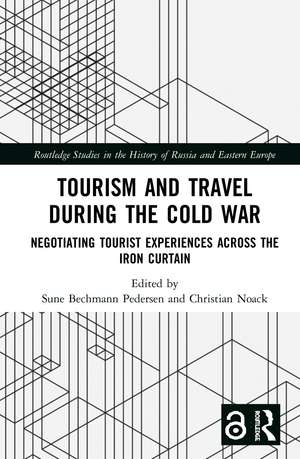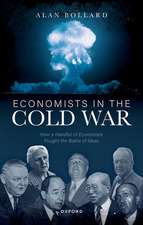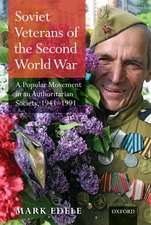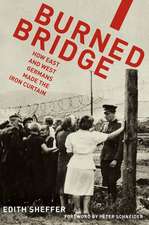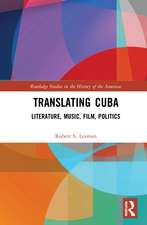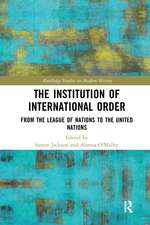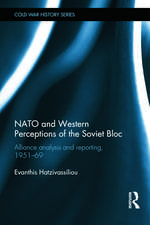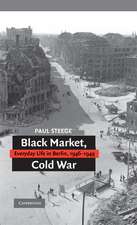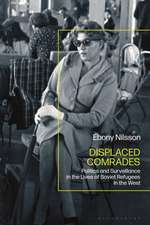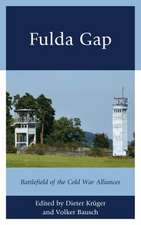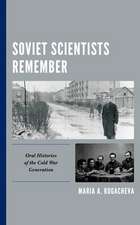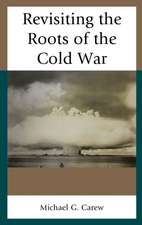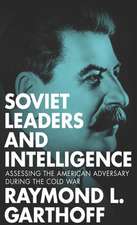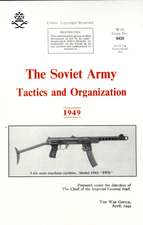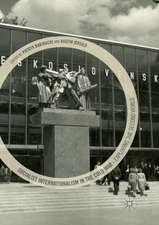Tourism and Travel during the Cold War: Negotiating Tourist Experiences across the Iron Curtain: Routledge Studies in the History of Russia and Eastern Europe
Autor Sune Bechmann Pedersen, Christian Noacken Limba Engleză Hardback – 19 sep 2019
| Toate formatele și edițiile | Preț | Express |
|---|---|---|
| Paperback (1) | 325.11 lei 3-5 săpt. | +17.62 lei 6-12 zile |
| Taylor & Francis – apr 2021 | 325.11 lei 3-5 săpt. | +17.62 lei 6-12 zile |
| Hardback (1) | 1109.66 lei 6-8 săpt. | |
| Taylor & Francis – 19 sep 2019 | 1109.66 lei 6-8 săpt. |
Din seria Routledge Studies in the History of Russia and Eastern Europe
- 15%
 Preț: 403.76 lei
Preț: 403.76 lei -
 Preț: 325.11 lei
Preț: 325.11 lei - 9%
 Preț: 1003.63 lei
Preț: 1003.63 lei -
 Preț: 284.52 lei
Preț: 284.52 lei - 14%
 Preț: 315.08 lei
Preț: 315.08 lei - 18%
 Preț: 1057.40 lei
Preț: 1057.40 lei -
 Preț: 427.12 lei
Preț: 427.12 lei - 14%
 Preț: 325.34 lei
Preț: 325.34 lei - 18%
 Preț: 273.05 lei
Preț: 273.05 lei - 18%
 Preț: 1279.68 lei
Preț: 1279.68 lei -
 Preț: 379.71 lei
Preț: 379.71 lei -
 Preț: 383.33 lei
Preț: 383.33 lei - 16%
 Preț: 325.34 lei
Preț: 325.34 lei - 18%
 Preț: 1056.28 lei
Preț: 1056.28 lei - 16%
 Preț: 274.06 lei
Preț: 274.06 lei - 18%
 Preț: 999.97 lei
Preț: 999.97 lei - 18%
 Preț: 1276.34 lei
Preț: 1276.34 lei - 18%
 Preț: 1000.27 lei
Preț: 1000.27 lei - 18%
 Preț: 1060.87 lei
Preț: 1060.87 lei -
 Preț: 463.58 lei
Preț: 463.58 lei - 14%
 Preț: 302.36 lei
Preț: 302.36 lei -
 Preț: 444.62 lei
Preț: 444.62 lei -
 Preț: 469.34 lei
Preț: 469.34 lei - 14%
 Preț: 301.13 lei
Preț: 301.13 lei -
 Preț: 416.22 lei
Preț: 416.22 lei -
 Preț: 462.81 lei
Preț: 462.81 lei - 14%
 Preț: 312.43 lei
Preț: 312.43 lei - 18%
 Preț: 1163.63 lei
Preț: 1163.63 lei -
 Preț: 442.50 lei
Preț: 442.50 lei - 26%
 Preț: 875.55 lei
Preț: 875.55 lei - 18%
 Preț: 1116.38 lei
Preț: 1116.38 lei - 18%
 Preț: 1107.75 lei
Preț: 1107.75 lei -
 Preț: 436.14 lei
Preț: 436.14 lei - 18%
 Preț: 1273.35 lei
Preț: 1273.35 lei
Preț: 1109.66 lei
Preț vechi: 1353.25 lei
-18% Nou
212.33€ • 231.37$ • 178.92£
Carte tipărită la comandă
Livrare economică 24 aprilie-08 mai
Specificații
ISBN-10: 0367192128
Pagini: 226
Ilustrații: 4 Halftones, black and white
Dimensiuni: 156 x 234 x 18 mm
Greutate: 0.47 kg
Ediția:1
Editura: Taylor & Francis
Colecția Routledge
Seria Routledge Studies in the History of Russia and Eastern Europe
Locul publicării:Oxford, United Kingdom
Cuprins
Notă biografică
Christian Noack is Associate Professor for East European Studies at the University of Amsterdam. He has published broadly on the history of tourism in the Soviet Union and currently leads a HERA project on the "European Spa as a Public Space and a Social Metaphor."
Descriere
The Iron Curtain was not an impenetrable divide, and contacts between East and West took place regularly and on various levels throughout the Cold War. This book explores how the European tourist industry transcended the ideological fault lines and the communist states attracted an ever-increasing number of Western tourists. Based on extensive original research, it examines the ramifications of tourism, from sun-and-sea package tours to human rights travels, in key Eastern European locations including East Berlin, the Soviet Union, Yugoslavia, and Albania.
The book's analysis of the politics, culture, and history of tourism to the East offers important new perspectives on European tourism in the twentieth century.
